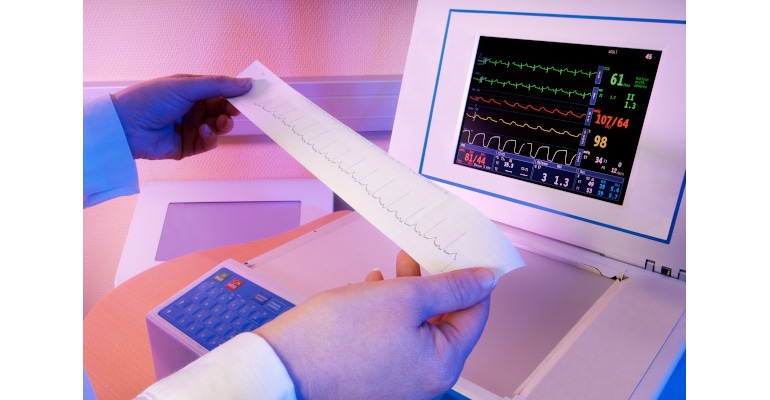Who Diagnosed It Better: AI or a Sonographer?
A study examined whether artificial intelligence (AI) or a sonographer could best assess and diagnose cardiac function after reading an echocardiogram.
April 13, 2023

Artificial intelligence's use in cardiology was put to the test in what is described as a "first-of-its-kind, blinded, randomized clinical trial" led by investigators in the Smidt Heart Institute and the Division of Artificial Intelligence in Medicine at Cedars-Sinai.
One of the first AI technologies to evaluate cardiac function was developed in 2020 by researchers at the Smidt Heart Institute and Stanford University. The AI measured left ventricular ejection fraction, considered a key metric in diagnosing cardiac function. According to a Cedars-Sinai news release, a new study built on this earlier work examined whether AI was more accurate in evaluating 3,495 transthoracic echocardiogram studies by comparing initial assessment by AI or by a sonographer. The investigators found that AI proved superior in assessing and diagnosing cardiac function when compared with echocardiogram assessments made by sonographers, they shared in the release. Their research was published in Nature.
"The results have immediate implications for patients undergoing cardiac function imaging as well as broader implications for the field of cardiac imaging," explained cardiologist David Ouyang, MD, principal investigator of the clinical trial and senior author of the study, in the release. "This trial offers rigorous evidence that utilizing AI in this novel way can improve the quality and effectiveness of echocardiogram imaging for many patients."
Added Sumeet Chugh, MD, director of the Division of Artificial Intelligence in Medicine and the Pauline and Harold Price Chair in Cardiac Electrophysiology Research: "This successful clinical trial sets a superb precedent for how novel clinical AI algorithms can be discovered and tested within health systems, increasing the likelihood of seamless deployment for improved patient care."
According to the findings from the new study:
Cardiologists more frequently agreed with the AI initial assessment and made corrections to only 16.8% of the initial assessments made by AI.
Cardiologists made corrections to 27.2% of the initial assessments made by the sonographers.
The physicians were unable to tell which assessments were made by AI and which were made by sonographers.
The AI assistance saved cardiologists and sonographers time.
"We asked our cardiologists to guess if the preliminary interpretation was performed by AI or by a sonographer, and it turns out that they couldn’t tell the difference," Ouyang shared in the release. "This speaks to the strong performance of the AI algorithm as well as the seamless integration into clinical software. We believe these are all good signs for future AI trial research in the field."
About the Author(s)
You May Also Like



